- Need Technical Assistance? nhsp@getvfairs.io
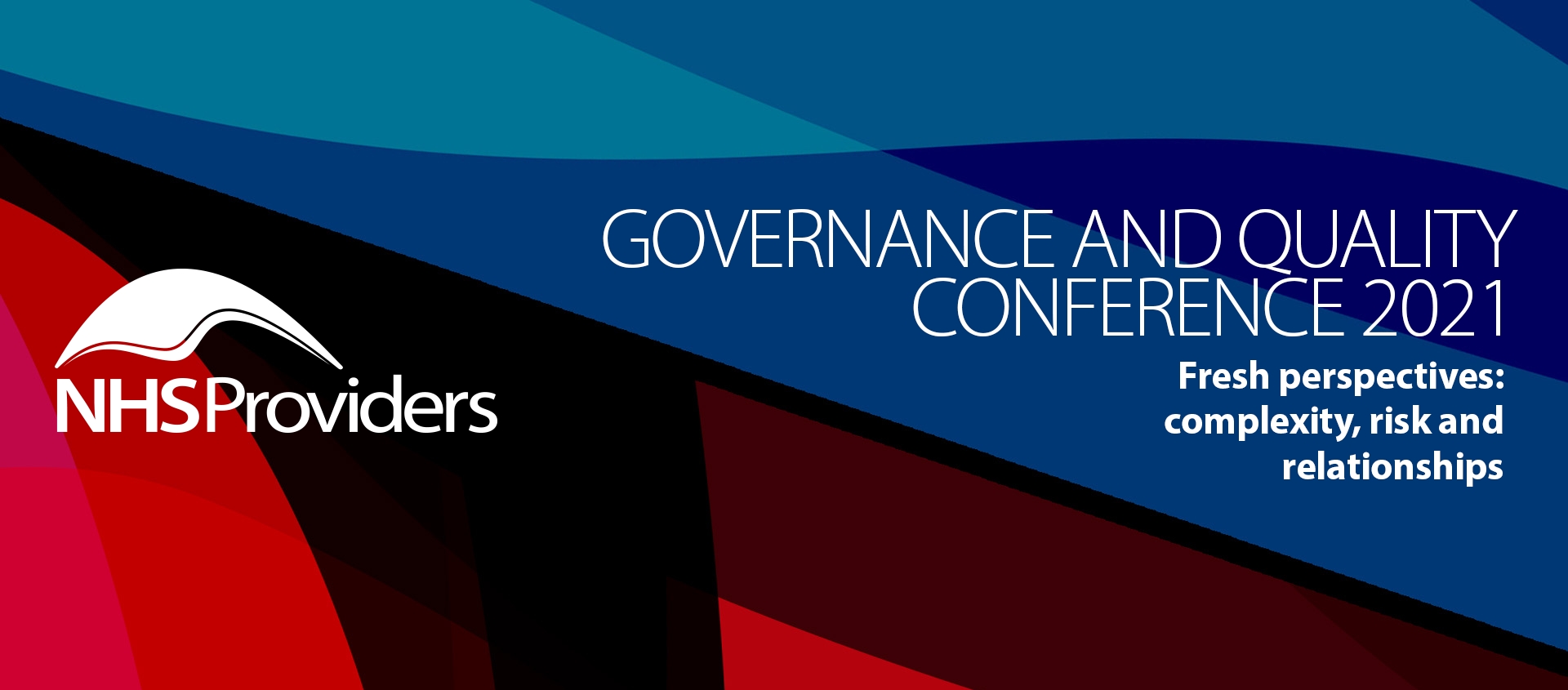
17-20 May 2021 11:00 AM
This year we're combining our quality and governance conferences into one event which will run virtually over four days from 17-20 May 2021.
This conference asks how we can best meet the challenge of ensuring quality care in an environment of ever-increasing complexity, against a backdrop of the unprecedented challenge.
The event explores how fresh thinking helped in what was an incredible system-wide response over the last eighteen months. It asks, can the lessons learned continue to help as system integration moves further forward, demand and capacity continues to challenge, and as staff increasingly rely on compassionate leadership and the right cultures to cope amid the dilemmas of the day-to-day?
The NHS Providers' Governance and Quality conference is a unique experience – it's your chance to hear from expert speakers and meet with members in the sector who are committed to improving governance and board performance.
Our event, taking place from 17-20 May 2021 online, is the only kind in the sector, giving you a variety and depth of guidance on the topics that matter to you – information you won't find anywhere else.
"A great opportunity to refresh your thinking, learn from others and network with peers."Previous delegate
This event provides the platform for the thinking, discussion and debate that lies at the heart of your role. Enjoy networking throughout the conference on Twitter using #governancequality21 to join in the conversation with other NHS professionals to share insight and best practice.
This year’s combined quality and governance conference asks how we can best meet the challenge of ensuring quality care in an environment of ever-increasing complexity, against a backdrop of the unprecedented challenge of the last eighteen months. We explore how fresh thinking helped in what was an incredible system-wide response and ask, can the lessons learned continue to help as system integration moves further forward, demand and capacity continues to challenge, and as staff increasingly rely on compassionate leadership and the right cultures to cope amid the dilemmas of the day to day?
Programme – Day 1 – 17 May 2021
 11.00am
11.00amSir Ron Kerr, Chair, NHS Providers
Ron Kerr has spent all his career in the health and care sector and has been a chief executive at national, regional and local level for over 30 years, latterly as chief executive of Guy’s and St Thomas’ NHS Foundation Trust until 2015. He is currently chair of NHS Providers, independent chair of Healthier Together, the STP for Bristol, North Somerset and South Gloucestershire Clinical Commissioning Group and a board member of Genomics England Ltd. He is also a trustee of Guy’s and St Thomas’ Charity and King’s College London. He was knighted for services to the NHS in 2011.
 11.10-11.50am
11.10-11.50amThe NHS is in the midst a period of far-reaching change. As collaborative approaches develop across the sector, how do we identify and preserve what has worked well over the last 15 years to improve patient and service user care? How do we ensure that any changes made build on past experiences of what did and didn’t work, and consistently add value? Saffron Cordery will highlight the key elements of the current governance and oversight model that we need to maintain, the role these play in building a culture focused on quality, and the pitfalls that we need to avoid as we move towards ever-closer collaboration between providers and into system working.
Saffron Cordery, Deputy Chief Executive, NHS Providers
Saffron Cordery is our deputy chief executive, working as part of the NHS Providers’ senior management team and sits on our board. Saffron has extensive experience in policy development, influencing and communications and has worked in the healthcare sector since 2007. Before moving into healthcare, Saffron was head of public affairs at the Local Government Association, the voice of local councils in England. Her early career focused on influencing EU legislation and policy development, and previously worked in community education. Saffron has a degree in modern languages from the University of Manchester, for ten years was a board member - and later chair - of a 16-19 college in Hampshire, and is a trustee of GambleAware, a leading charity committed to minimising gambling-related harm.
 12.00-12.20pm
12.00-12.20pmFind out how the trust responded to increasing concerns over staff wellbeing during the pandemic. Using a tiered model of interventions to increase knowledge in self-care and stress management, the approach positively impacted on trust culture, morale and preventing absenteeism among staff
Sir Ron Kerr, Chair, NHS Providers
Dr Mary Docherty, Consultant Liaison Psychiatrist and Interim Joint Deputy Medical Director for Quality and Patient Safety Lead, South London and Maudsley NHS Foundation Trust
Dr Martin Parsons, Senior Clinical Psychologist,South London and Maudsley NHS Foundation Trust
 12.30-1.30pm
12.30-1.30pmThe last eighteen months have seen a huge amount of swift learning and reflection for everyone in the health and care service, as new risks and challenges came at pace. System working also gives rise to new risks alongside the consideration that past experience will not always be sufficient to identify and manage it. It also requires constructive challenge and a rigorous approach to assurance. This session will reflect on how recent experiences can help address these questions and provides signposts to solutions to the issues that are likely to be encountered by those representing their trusts in systems and collaborations.
Alison Marshall, Chair, Gateshead Health NHS Foundation Trust
Sir Ron Kerr, Chair, NHS Providers
Ron Kerr has spent all his career in the health and care sector and has been a chief executive at national, regional and local level for over 30 years, latterly as chief executive of Guy’s and St Thomas’ NHS Foundation Trust until 2015. He is currently chair of NHS Providers, independent chair of Healthier Together, the STP for Bristol, North Somerset and South Gloucestershire Clinical Commissioning Group and a board member of Genomics England Ltd. He is also a trustee of Guy’s and St Thomas’ Charity and King’s College London. He was knighted for services to the NHS in 2011.
Dr Kathy McLean, Chair, University Hospitals of Derby and Burton NHS Foundation Trust
Hattie Llewelyn-Davies, Chair, Buckinghamshire Healthcare NHS Trust
Hattie Llewelyn-Davies has been chair of Buckinghamshire Healthcare NHS Trust, a combined acute and community trust, since March 2014. Prior to this, Hattie was chair of Hertfordshire Partnership University NHS Foundation Trust, a mental health and learning disabilities trust which provides services across the Eastern Region. Before working in the NHS, Hattie was employed in a number of chief executive and senior management roles in the housing and homelessness sector. Hattie chairs two housing associations and is a consultant on governance and board development in the housing sector.
 1.40-2.40pm
1.40-2.40pmThis session shares learning on how to be prepared for the longer-term impacts of traumatic events on staff. Hear about the successful strategies used during other extended crisis situations, and how you as leaders can apply them to support your workforce as the pandemic evolves and the service recovers. Hear from a fellow trust on the longer-term steps they are taking to ensure appropriate continuing support to their staff, recognising the intense and potentially traumatic situations that healthcare staff can face, both during the pandemic and beyond.
Darren Kilroy, Executive Medical Director, Countess of Chester NHS Foundation Trust
Richard Mitchell, Chief Executive, Sherwood Forest Hospitals NHS Foundation Trust
Richard was appointed as chief executive of Sherwood Forest Hospitals NHS Foundation Trust in June 2017. He believes all patients should receive the level of care we would want our friends and families to receive. Richard views teamwork, inclusion, support and kindness as essential to the delivery of high quality, safe patient care. Richard is also the executive lead for the Mid-Nottinghamshire Integrated Care Partnership and chair of the East Midlands Cancer Alliance and the East Midlands Clinical Research Network.
Professor Prathiba Chitsabesan, Associate National Clinical Director & Clinical Advisor (Greater Manchester and East Cheshire Strategic Clinical Networks), NHS England
Professor Prathiba Chitsabesan is a consultant in child and adolescent psychiatry working at Pennine Care NHS Foundation Trust; a large mental health and learning disability trust. She was involved in developing the mental health response following the Manchester Arena attack in 2017 and contributing to the national framework for psychosocial and mental health care following incidents and emergencies (Emergency Preparedness Resilience Response). She continues to be research active as a visiting professor at Manchester Metropolitan University.
Joni Jabbal, Researcher, The King’s Fund
 2.40pm
2.40pmProgramme – Day 2 – 18 May 2021
 11.00am
11.00amSir Ron Kerr, Chair, NHS Providers
Ron Kerr has spent all his career in the health and care sector and has been a chief executive at national, regional and local level for over 30 years, latterly as chief executive of Guy’s and St Thomas’ NHS Foundation Trust until 2015. He is currently chair of NHS Providers, independent chair of Healthier Together, the STP for Bristol, North Somerset and South Gloucestershire Clinical Commissioning Group and a board member of Genomics England Ltd. He is also a trustee of Guy’s and St Thomas’ Charity and King’s College London. He was knighted for services to the NHS in 2011.
 11.10-11.50am
11.10-11.50amThere has been significant focus on learning from adverse events for many years, which has had a transformative effect on healthcare, producing innovations in patient care, an active scholarly community, and genuine efforts to involve the public in the ongoing evolution of care delivery. However, reducing harm systematically over the longer term has been challenging for trusts, alongside a growing crisis of staff burnout, recruitment and retention issues, and a growth in regulatory demands. The pandemic has exacerbated these issues. What have we learned matters most in creating the conditions for safe, high quality care in an increasingly complex healthcare environment and how can we approach safety differently?
Professor Suzette Woodward, Visiting Professor, Institute of Global Health Innovation, ImperialCollege University London, Honorary Doctor of Science, University of West London, and author of‘Rethinking Patient Safety’and ‘Implementing Patient Safety
 12.00-12.20pm
12.00-12.20pmFind out how the trust used a unique and innovative approach to integrate aviation safety practices across the trusts to improve clinical teamwork and reduce the potential human error. The trust initiated the ‘Pilot Sim’ project, which involved furloughed airline pilots who were volunteering in the hospital during the pandemic.
Sir Ron Kerr, Chair, NHS Providers
Gillian Lewis, Associate Director of Quality Governance, Whittington Health NHS Trust
Alex Jolly, Short Haul Captain, Wingfactors
Dr Robbie Lloyd, Emergency Medicine Trainee, Whittington Health NHS Trust
Dr Mumtaz Mooncey, Paediatrics Trainee, Whittington Health NHS Trust
 12.30-1.30pm
12.30-1.30pmProfessor Woodward hosts a conversation with trust leaders who are seeking to enable balanced, proactive and positive approaches to managing the safety of patients. Find out too how their experiences during the Covid-19 pandemic have influenced their thinking.
Professor Suzette Woodward, Visiting Professor for the Institute of Global Health Innovation at Imperial College University London, Honorary Doctor of Science at the University of West London, and author of ‘Rethinking Patient Safety’ and ‘Implementing Patient Safety’
Dr Maxine Power, Director of Quality, Innovation and Improvement, North West Ambulance NHS Trust
Maxine is an improvement leader with over 30 years’ experience leading improvement in the NHS. Initially trained as clinician, Maxine has had an eclectic career working across clinical practice and academia in a variety of settings. Maxine has over 20 peer reviewed publications in improvement focussing on large scale change, measurement, evaluation and patient safety. Maxine is currently the executive director of quality, innovation and improvement at the North West Ambulance Service NHS Trust, is an honorary professor of Improvement Science with the Manchester Academic Health science centre and served as a Health Foundation Governor for four years until 2014
Sam Allen MBA, Chief Executive, Sussex Partnership NHS Foundation Trust
 1.40-2.40pm
1.40-2.40pmThe trust board bears responsibility and accountability for effective incident management in its organisation. This session outlines why behaviours that focus on openness, just culture and learning and improvement matter as boards undertake this role. We also explore how placing people at the centre of the board’s response can transform staff and patient experiences, drive improvement, save money and reduce workforce pressures.
Darren Kilroy, Executive Medical Director, Countess of Chester NHS Foundation Trust
Paul Stretton, academic, author and speaker on just culture
Professor Jane O Hara, Professor of Healthcare Quality and Safety, School of Healthcare, University of Leeds, and Deputy Director, Yorkshire Quality & Safety Research Group
Dr Joe Rafferty, Chief Executive, and Beatrice Fraenkel, Chairman, Mersey Care NHS Foundation Trust
 3.00-4.00pm
3.00-4.00pmWe all recognise the issues facing the NHS over the last year. COVID-19 presented enormous challenges but also great opportunities for the NHS system to work together, learn and grow stronger. This session will hear first-hand from a director of procurement in an NHS trust, reflecting on the scale and pace of change brought by the pandemic, the huge surge in demand and the pressures put on the trust to meet the needs of its patients. Hear from NHS Supply Chain, the national provider of medical equipment and consumables to the NHS, who will explore the impact this had on a national scale. We will consider how the system worked together to deliver the products needed, while ensuring that quality and safety remained a priority. NHS Supply Chain will share its vision for continuous improvement, with quality at the centre and look at how we can build on the resilience and strength gained during the pandemic.
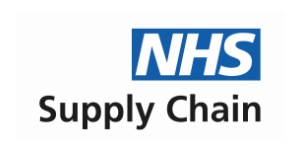
Kevin Rennie, Chief Operating Officer, NHS Providers
Chris Holmes, Supply Chain Director, NHS Supply Chain
Chris has worked within the NHS for over 20 years in a variety of senior procurement and supply chain roles. This includes the management of the procurement and customer related activities undertaken by NHS Supply Chain.
Prior to joining the NHS, Chris spent nine years in private industry, working for retail clients in the manufacturing sector. Chris has a master’s degree in business administration that focuses on business and supply chain strategy and a post graduate professional diploma in management.
Sara Ford, Director of Customer and Strategy, NHS Supply Chain
Sara joined NHS Supply Chain from a 20+ year career in Accenture, where she was responsible for their UK and Ireland Healthcare Consulting business. Prior to joining, Sara led a team working across a number of acute trusts, supporting them to deliver operational efficiencies and improved clinical outcomes.
A desire to deliver these changes at a national level led Sara to join the NHS Supply Chan, where she has helped to deliver a revised strategy that recognises the evolving needs of the healthcare system.
David Main, Director of Procurement, South West London Procurement Partnership
 4.00pm
4.00pmProgramme – Day 3 – 19 May 2021
 11.00am
11.00amIngrid Barker, Chair, Gloucestershire Health and Care NHS Foundation Trust
Ingrid Barker is the chair of Gloucestershire Health and Care NHS Foundation Trust and also a trustee and board member for NHS Providers, elected to represent the community trusts across the country. A qualified social worker, Ingrid established a service for young homeless people in Central London and was a regional director for MIND. In her NHS executive roles, Ingrid replaced institutional mental health provision with community services.
 11.10-11.50am
11.10-11.50amCognitive bias in decision making can have far reaching negative impacts. Boards and individual directors need to be aware of the likelihood of cognitive bias affecting their thinking and be proactive in ensuring it has minimal impact on their decision making. This session identifies different types of cognitive bias and signposts techniques to avoid and mitigate them.
Professor Ivo Vlaev, Professor of Behavioural Science at Warwick Business School, University of Warwick
Professor Ivo Vlaev is a professor of behavioural science at the University of Warwick and received a DPhil (PhD) in experimental psychology from the University of Oxford. Previously, Ivo also worked as a research fellow at University College London and senior lecturer at Imperial College London. He has a track record of research in decision science (behavioural economics) and behaviour change, which is published in peer-reviewed academic journals, book chapters and government reports. Ivo is also a co-author of the Mindspace report, which provides a framework for designing effective policy utilising the latest insights from behavioural sciences. The framework is widely used across government and in the commercial sector.
 12.00-12.20pm
12.00-12.20pmFind out how the trust used quality improvement methodology to address the work life experience of staff, particularly ethnic minority groups and staff facing difficulties at work.
Ingrid Barker, Chair, Gloucestershire Health and Care NHS Foundation Trust
Tanya Carter, Director of People and Culture, East London NHS Foundation Trust
Adrian Curwen, Service User & Honorary Member People and Culture Team, East London NHSFoundation Trust
Jemma Ball, Deputy Director People and Culture, East London NHS Foundation Trust
 12.30-1.30pm
12.30-1.30pmBeing answerable for the actions and decisions made by leaders is part and parcel of good governance. But accountability is not just about responding to the regulators, commissioners and the national bodies, it should also be about involving and listening to those who use services and local communities. This session debates what kind of local accountability mechanisms we need in order to ensure local voices are engaged in the governance structures of a system, including ensuring we hear from those who are not always heard.
Miriam Deakin, Director of Policy and Strategy, NHS Providers
Miriam began her career in local government, working in management roles at the centre of large councils and in social care. She developed her interest in policy and influencing work at the Local Government Association working on securing support and autonomy for councils to drive their own improvement. Miriam joined NHS Providers in 2012 and has supported and led their policy and influencing programme on behalf of trusts since that time, with a particular recent focus on system working, and collaboration between trusts and their local partners. Miriam has been director of policy and strategy at NHS Providers for the last two years. She holds specific responsibilities for driving organisational strategy, and leads a strong team of professionals across analysis, policy and public affairs.
Paul Devlin, Chair, Nottinghamshire Healthcare NHS Foundation Trust
Paul was appointed chair at Nottingham Healthcare NHS Foundation Trust in January 2020, following six years as chair at Lincolnshire Partnership NHS Foundation Trust where he helped take the trust’s CQC rating from “requires improvement” to “good” in all domains except for “outstanding” in ‘well-led’. He draws on a career in the charity sector where he held national roles in Age Concern England, Headway and Action for Children. Paul was also director of Because it Matters Ltd, a development consultant specialising in governance and leadership.
Dr Charlotte Augst, Chief Executive, National Voices
Dr Charlotte Augst is the chief executive of National Voices and has held senior positions in health and research policy in parliament, for national regulators and in the charitable sector. Charlotte holds a PhD in law and medical ethics.
Since starting at National Voices, Charlotte has led a strategic reorientation of the organisation towards a more visible role for its members – their insight, practice and innovations – and towards grounding National Voices’ influencing work more explicitly in the experience of people who live with ill health, disability or impairment. National Voices is the leading coalition of health and social care charities in England, who work together to strengthen the voice of patients, service users, carers, their families and the voluntary organisations that work for them.
Peter Allanson, Principal Consultant, Good Governance Institute
Peter Allanson joined the Good Governance Institute after 10 years as trust secretary and director of corporate affairs at Guy’s and St Thomas’. During this period, he has worked closely with the chair, board and council of governors to develop systems and arrangements to provide assurance, governance and delivery within a values-driven environment with an open and transparent culture and a restlessness for change and improvement. This broad and rich mix of experience gives Peter a unique set of insights and ways to consider issues and problems and their solutions.
 1.40-2.40pm
1.40-2.40pmAn opportunity to discuss the upcoming NHS bill with DHSC. The legislation needs to do more than place systems and collaboratives on a formal footing and to establish NHS England and NHS Improvement as an organisation in its own right. It needs to facilitate better operation of the NHS and to ensure that decision making powers are at the right level to deliver for communities and that accountability rests with those responsible for decisions. This session will examine the latest proposals for legislation, give broader perspectives and provide the opportunity to feedback your thoughts direct to the DHSC bill team.
Chris Hopson, Chief Executive, NHS Providers
Chris Hopson joined NHS Providers in September 2012 as chief executive following a career spanning the public, private and voluntary sectors. In his current role, Chris has been a frequent commentator on COVID-19 issues, regularly appearing in the media over the last few months including Question Time, Any Questions, the Today Programme and all the main television and radio news bulletins. He’s written a series of blogs and twitter threads (@ChrisCEOHopson) on topics such as personal protective equipment (PPE), the NHS’ COVID-19 testing regime, and NHS discharges into care homes that have been widely reported. He also authored the first major public analysis of the NHS’ performance in the first few weeks of COVID-19, Confronting Coronavirus in the NHS.
Michael Rourke, Partner, Hempsons
Michael has a wide range of experience in advising clients operating across the health and social care sector on governance matter, regulation and commercial law. Michael has recently been advising trusts and clinical commissioning groups (CCGs) on integration matters on a range of issues in different provider collaboratives and alliances and on joint and lead decision making across organisational boundaries.
Dr Jason Yiannikkou, Interim Director, NHS Legislation Programme Team NHS Policy and Performance Group, Department of Health and Social Care
Dame Gill Morgan, Independent Chair, Gloucestershire ICS
 3.00-4.00pm
3.00-4.00pmThis session will examine some of the typical issues and problems that governance professionals and board members face on a daily basis when managing important and confidential board information. This session will give insight on best practices that will facilitate managing this information in a secure way:
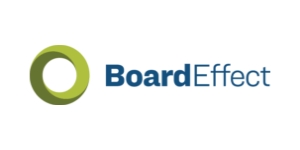
Kevin Rennie, Chief Operating Officer, NHS Providers
Mark Wilson, Governance Advisor, Diligent
Dottie Schindlinger, Executive Director Diligent Institute, Diligent
Dottie Schindlinger is executive director of Diligent Institute, the global governance research arm of Diligent Corporation, leading provider of modern governance software. She co-authored Governance in the Digital Age: A Guide for the Modern Corporate Board Director, and co-hosts The Corporate Director Podcast. A graduate of the University of Pennsylvania, Dottie is the board vice chair of the Alice Paul Institute and a fellow of the Salzburg Global Seminar.
 4:00pm
4:00pmProgramme – Day 4 – 20 May 2021
 11.00am
11.00amSir Ron Kerr, Chair, NHS Providers
Ron Kerr has spent all his career in the health and care sector and has been a chief executive at national, regional and local level for over 30 years, latterly as chief executive of Guy’s and St Thomas’ NHS Foundation Trust until 2015. He is currently chair of NHS Providers, independent chair of Healthier Together, the STP for Bristol, North Somerset and South Gloucestershire Clinical Commissioning Group and a board member of Genomics England Ltd. He is also a trustee of Guy’s and St Thomas’ Charity and King’s College London. He was knighted for services to the NHS in 2011.
 11.10-11.50am
11.10-11.50amThe last decade has seen a number of policies put in place to help support and encourage openness. This session reflects on what is a long-standing challenge, drawing on the experience of the initiatives put in place to date, highlighting some common activities that can help to turn openness policies into changes in the attitudes, behaviours and experiences of staff, patients and families.
Professor Graham Martin, Director of Research, The Healthcare Improvement Studies Institute (THIS Institute), University of Cambridge
Professor Graham Martin is director of research at THIS Institute, a unit at the University of Cambridge, funded by the Health Foundation to develop the evidence base for improving healthcare quality and safety. From 2017 to 2020 he led a Department of Health and Social Care-funded evaluation of initiatives designed to improve openness in the English NHS, following the Francis report. His research focuses on social, organisational and professional issues in healthcare system change.
 12.00-12.20pm
12.00-12.20pmFind out how the trust created a new virtual wellbeing hub to identify staff health and wellbeing and providing access to external mental health services.
Sir Ron Kerr, Chair, NHS Providers
Dr Daljit Hothi, Associate Medical Director for Wellbeing, Leadership & Improvement, Great Ormond Street Hospital for Children NHS Foundation Trust
 12.30-1.30pm
12.30-1.30pmThis session focuses on hearing directly from trusts who are tackling the challenges that can lie in creating an environment where all staff feel safe and able to speak up candidly, to ask for help, share concerns and offer ideas. Reflecting on the role of leadership culture and behaviours, speakers will share their personal experiences and how this relates to high quality care and their approach to board assurance.
Saffron Cordery, Deputy Chief Executive, NHS Providers
Caroline Alexander and Alistair Chesser, Group Chief Nurse and Group Chief Medical Officer, Barts Health NHS Trust
Angela Hillery, Chief Executive, Northamptonshire Healthcare Foundation Trust & Leicestershire Partnership NHS Trust
Thea Stein, Chief Executive, Leeds Community Healthcare NHS Trust
 1.40-2.40pm
1.40-2.40pmTrust-wide approaches to continuous quality improvement are fundamental to high-quality care. Hear from two trusts at different stages of pursuing a trust-wide approach to improvement including their reflections on the personal journeys taken at a board level to accept and adapt to a new approach, and what they wish they’d known as they started out.
Tim Horton, Associate Director, Health Foundation
Sir Jim Mackey, Chief Executive, Northumbria Healthcare NHS Foundation Trust
Elizabeth Hale, Director of Improvement, Central London Community Healthcare NHS Trust
 2.40pm
2.40pm
All sessions will be available on demand for 30 days after the event.

Angela has worked within the NHS for over 30 years and has held a variety of leadership positions during this time, including director of operations. In 2017 and 2018, Angela was listed in the Health Service Journal's (HSJ) top 50 rated chief executives. Angela’s ethos is in her commitment to upholding values and developing compassionate cultures for those we for those we care for and work with.
Angela has a clinical background as a speech and language therapist and has served on the National Management Board of the Royal College of Speech and Language Therapy and held a partner role with the Health Professional Council.
In August 2017, Angela also took on the lead role for the Northamptonshire Sustainability and Transformation Plan in Northamptonshire. Angela is passionate about parity of esteem for Mental Health services.
In 2019 Angela was appointed chief executive of Leicestershire Partnership Trust, in a shared role with Northamptonshire Healthcare NHS Foundation Trust.
Alistair has been chief medical officer at Barts Health NHS Trust since 2016. He trained in Cambridge, London and Aberdeen prior to being appointed consultant nephrologist at Barts Health in 2003.

Beatrice is chair of Mersey Care NHS Foundation Trust and was previously chair of South Liverpool Primary Care Trust. She is an industrial design engineer and ergonomist, expert in developing systems and designs to meet the evidenced needs of recipients. She has experience in regeneration and a member of the government’s High Street Task Force. Beatrice is a trustee of NHS Providers and the Design Council and a board member of NHS Confederation’s Mental Health Network. She also has a strong regulatory background having been chair of the Architects Registration Board, a lay Care Quality Commission inspector and a member of the Standards Board of England.

Charlotte is the chief executive of National Voices and has held senior positions in health and research policy in parliament, for national regulators and in the charitable sector. Charlotte holds a PhD in law and medical ethics.
Since starting at National Voices, Charlotte has led a strategic reorientation of the organisation towards a more visible role for its members – their insight, practice and innovations – and towards grounding National Voices’ influencing work more explicitly in the experience of people who live with ill health, disability or impairment. National Voices is the leading coalition of health and social care charities in England, who work together to strengthen the voice of patients, service users, carers, their families and the voluntary organisations that work for them.
Caroline graduated as a nurse in 1987 from Edinburgh University (BSc/RGN) and has an MSc in Nursing Studies from South Bank University (2001). From 1987 to 1993 she specialised in nursing older people in Edinburgh and then London at Guy’s Hospital as a ward sister.
In 2005, Caroline took up her first director post, as director of nursing and therapies within Tower Hamlets Primary Care Trust (PCT). With the clustering of PCTs in London in 2011, she took on the director of nursing and quality within NHS East London and the City initially, and then within NHS North East London when the clusters merged in 2012. Caroline was the chief nurse for NHS London for six months until she joined NHS England as regional chief nurse for London in April 2013. Caroline took up her current role of chief nurse for Barts Health in March 2016.
Caroline was awarded honorary doctorates from City, University of London in 2017 and Middlesex University in 2018 and she is a trustee of the Foundation of Nursing Studies.

Chris has worked within the NHS for over 20 years in a variety of senior procurement and supply chain roles. This includes the management of the procurement and customer related activities undertaken by NHS Supply Chain.
Prior to joining the NHS, Chris spent nine years in private industry, working for retail clients in the manufacturing sector. Chris has a master’s degree in business administration that focuses on business and supply chain strategy and a post graduate professional diploma in management.
Chris Hopson joined NHS Providers in September 2012 as chief executive following a career spanning the public, private and voluntary sectors. In his current role, Chris has been a frequent commentator on COVID-19 issues, regularly appearing in the media over the last few months including Question Time, Any Questions, the Today Programme and all the main television and radio news bulletins. He’s written a series of blogs and twitter threads (@ChrisCEOHopson) on topics such as personal protective equipment (PPE), the NHS’ COVID-19 testing regime, and NHS discharges into care homes that have been widely reported. He also authored the first major public analysis of the NHS’ performance in the first few weeks of COVID-19, Confronting Coronavirus in the NHS.
David joined St Georges University Hospitals NHS Foundation Trust in 2017 bringing with him a wealth of knowledge from a diverse commercial procurement career, including roles within financial services, Department for Communities and Local Government and the BBC.
Over the last 2 years, David has led the development of a shared procurement service transformation across South West London ICS in his most recent role as procurement director (commercial) for South West London Procurement Partnership hosted by St Georges University Hospitals NHS Foundation Trust.
David is the deputy chair of the NHS Supply Chain Customer Board and plays an active role in helping to shape future NHS procurement strategy.
Gill is currently an independent chair of Gloucestershire ICS and a trustee of Lloyds Bank Foundation. She was also previously chair of NHS Providers from 2014 to December 2019. Her career in healthcare began as a doctor working in hospitals, general practice and public health before moving into management. Her previous roles include permanent secretary of the Welsh Assembly government, chief executive of the NHS Confederation and chief executive of North and East Devon Health Authority.
Gill is a fellow of the Royal College of Physicians and the Faculty of Public Health and is a member of the Royal College of General Practitioners. While working in healthcare, she served on many national committees and working groups. She has an honorary Doctorate of Science from City University and is a past president of the International Hospital Federation. She is a patron of the Infection Prevention Society and was made a Dame Commander of the Order of the British Empire in June 2004.
Graham Martin is director of research at THIS Institute, a unit at the University of Cambridge, funded by the Health Foundation to develop the evidence base for improving healthcare quality and safety. From 2017 to 2020 he led a Department of Health and Social Care-funded evaluation of initiatives designed to improve openness in the English NHS, following the Francis report. His research focuses on social, organisational and professional issues in healthcare system change.
Hattie Llewelyn-Davies has been chair of Buckinghamshire Healthcare NHS Trust, a combined acute and community trust, since March 2014. Prior to this, Hattie was chair of Hertfordshire Partnership University NHS Foundation Trust, a mental health and learning disabilities trust which provides services across the Eastern Region. Before working in the NHS, Hattie was employed in a number of chief executive and senior management roles in the housing and homelessness sector. Hattie chairs two housing associations and is a consultant on governance and board development in the housing sector.

Ivo Vlaev is a professor of behavioural science at the University of Warwick and received a DPhil (PhD) in experimental psychology from the University of Oxford. Previously, Ivo also worked as a research fellow at University College London and senior lecturer at Imperial College London. He has a track record of research in decision science (behavioural economics) and behaviour change, which is published in peer-reviewed academic journals, book chapters and government reports. Ivo is also a co-author of the Mindspace report, which provides a framework for designing effective policy utilising the latest insights from behavioural sciences. The framework is widely used across government and in the commercial sector.

Dr Jane O'Hara is professor of Healthcare Quality and Safety at the University of Leeds, and deputy director of the Yorkshire Quality and Safety Research Group based at the Bradford Institute for Health Research. Her research interests include the involvement of patients in patient safety, how we measure quality and safety, and applying safety science theories to improve healthcare. Jane has authored over 50 academic publications, and received funding from National Institute Health Research, Health Education England, The Health Foundation, and the charitable sector.
Jason Yiannikkou is the director of the NHS Legislation Programme team in the Department of Health and Social Care (DHSC). Jason has worked in DHSC since 2001 in a number of roles including ministerial private secretary, deputy director for safety and quality and head of acute care and provider policy. In his current role, Jason’s team is responsible for the forthcoming legislation and for a number of policy areas linked to it, including Integrated Care Systems.
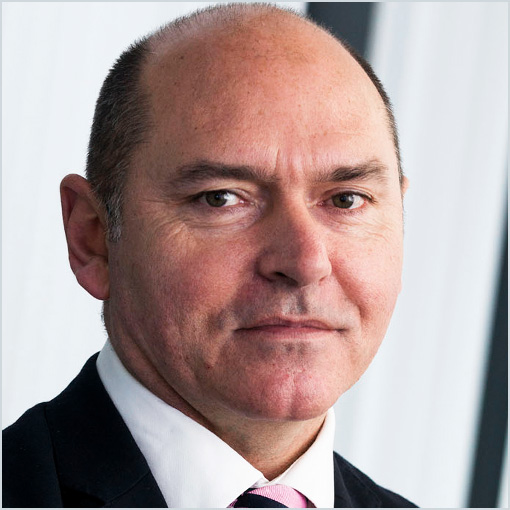
Sir James Mackey returned to his role as chief executive of Northumbria Healthcare NHS Foundation Trust in November 2017 after a two-year secondment in a national role as chief executive of NHS Improvement. He received his knighthood in 2018 for services to healthcare and has been at the forefront of the region’s response to the COVID-19 pandemic, which saw his trust set up its own factory to make personal protective equipment. Sir James has recently been appointment by NHS Supply Chain as chair of the NHS Customer Board for procurement and supply.
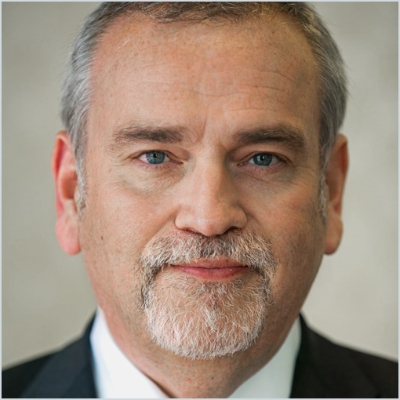
Joe Rafferty was appointed chief executive of Mersey Care NHS Trust in September 2012. During his tenure, he has led a significant expansion of the organisation, almost trebling it in size. Awarded a PhD in molecular genetics at Queen’s University Belfast in 1987, he spent the next 12 years researching drug resistance in cancer and published over 50 peer review articles on this and related areas, before a career change. Before joining the trust, he held a series of senior NHS leadership roles.
Joe is a founder member of the Zero Suicide Alliance UK and was named a Commander of the Order of the British Empire (CBE) in the New Year’s Honours List 2020 for his work on suicide prevention.

The impact of digital transformation at board level has been significant and Mark has been fortunate to work with clients implementing Board Portal Governance solutions since 2017. During this time, Mark has worked closely with clients, including many NHS clients within the UK and Ireland on overcoming the challenges faced by governance professionals in this digital age and implementing a board portal solution that helps facilitate the governance objectives of each individual organisation.

Maxine is an improvement leader with over 30 years’ experience leading improvement in the NHS. Initially trained as clinician, Maxine has had an eclectic career working across clinical practice and academia in a variety of settings. Maxine has over 20 peer reviewed publications in improvement focussing on large scale change, measurement, evaluation and patient safety. Maxine is currently the executive director of quality, innovation and improvement at the North West Ambulance Service NHS Trust, is an honorary professor of Improvement Science with the Manchester Academic Health science centre and served as a Health Foundation Governor for four years until 2014
Michael has a wide range of experience in advising clients operating across the health and social care sector on governance matter, regulation and commercial law. Michael has recently been advising trusts and clinical commissioning groups (CCGs) on integration matters on a range of issues in different provider collaboratives and alliances and on joint and lead decision making across organisational boundaries.

Miriam began her career in local government, working in management roles at the centre of large councils and in social care. She developed her interest in policy and influencing work at the Local Government Association working on securing support and autonomy for councils to drive their own improvement. Miriam joined NHS Providers in 2012 and has supported and led their policy and influencing programme on behalf of trusts since that time, with a particular recent focus on system working, and collaboration between trusts and their local partners. Miriam has been director of policy and strategy at NHS Providers for the last two years. She holds specific responsibilities for driving organisational strategy, and leads a strong team of professionals across analysis, policy and public affairs.

Paul was appointed chair at Nottingham Healthcare NHS Foundation Trust in January 2020, following six years as chair at Lincolnshire Partnership NHS Foundation Trust where he helped take the trust’s CQC rating from “requires improvement” to “good” in all domains except for “outstanding” in ‘well-led’. He draws on a career in the charity sector where he held national roles in Age Concern England, Headway and Action for Children. Paul was also director of Because it Matters Ltd, a development consultant specialising in governance and leadership.

Paul has experience working across high-risk industries, developing safety leadership and culture change processes and is currently working with a number of NHS trusts. He has written a series of papers published in academic literature with his book, Quantum Safety is due to be published later this year.
Paul’s approach challenges existing models for safety performance and embraces an understanding of complex systems. Recently, he has been working with NHS Education Scotland, developing a guide to support implementing a just culture.

Peter Allanson joined the Good Governance Institute after 10 years as trust secretary and director of corporate affairs at Guy’s and St Thomas’. During this period, he has worked closely with the chair, board and council of governors to develop systems and arrangements to provide assurance, governance and delivery within a values-driven environment with an open and transparent culture and a restlessness for change and improvement. This broad and rich mix of experience gives Peter a unique set of insights and ways to consider issues and problems and their solutions.
Professor Prathiba Chitsabesan is a consultant in child and adolescent psychiatry working at Pennine Care NHS Foundation Trust; a large mental health and learning disability trust. She was involved in developing the mental health response following the Manchester Arena attack in 2017 and contributing to the national framework for psychosocial and mental health care following incidents and emergencies (Emergency Preparedness Resilience Response). She continues to be research active as a visiting professor at Manchester Metropolitan University.

Richard was appointed as chief executive of Sherwood Forest Hospitals NHS Foundation Trust in June 2017. He believes all patients should receive the level of care we would want our friends and families to receive. Richard views teamwork, inclusion, support and kindness as essential to the delivery of high quality, safe patient care. Richard is also the executive lead for the Mid-Nottinghamshire Integrated Care Partnership and chair of the East Midlands Cancer Alliance and the East Midlands Clinical Research Network.

Saffron Cordery is our deputy chief executive, working as part of the NHS Providers’ senior management team and sits on our board. Saffron has extensive experience in policy development, influencing and communications and has worked in the healthcare sector since 2007. Before moving into healthcare, Saffron was head of public affairs at the Local Government Association, the voice of local councils in England. Her early career focused on influencing EU legislation and policy development, and previously worked in community education. Saffron has a degree in modern languages from the University of Manchester, for ten years was a board member - and later chair - of a 16-19 college in Hampshire, and is a trustee of GambleAware, a leading charity committed to minimising gambling-related harm.

Sam Allen became chief executive of Sussex Partnership NHS Foundation Trust in March 2017.
Sam started work in the NHS in 1996 and has a background in the operational management and leadership of mental health services and health and social care commissioning. Sam has also gained valuable experience working with an international healthcare organisation in the independent sector.
Sam is a chartered manager and companion of the Chartered Management Institute and chair of the Health and Care Women Leaders Network delivered by the NHS Confederation. Sam has a keen interest in all aspects of leadership and is a Leadership Fellow at St. George’s House, Windsor Castle and member of The Kings Fund General Advisory Council.

Sara joined NHS Supply Chain from a 20+ year career in Accenture, where she was responsible for their UK and Ireland Healthcare Consulting business. Prior to joining, Sara led a team working across a number of acute trusts, supporting them to deliver operational efficiencies and improved clinical outcomes.
A desire to deliver these changes at a national level led Sara to join the NHS Supply Chan, where she has helped to deliver a revised strategy that recognises the evolving needs of the healthcare system.

Ron Kerr has spent all his career in the health and care sector and has been a chief executive at national, regional and local level for over 30 years, latterly as chief executive of Guy’s and St Thomas’ NHS Foundation Trust until 2015. He is currently chair of NHS Providers, independent chair of Healthier Together, the STP for Bristol, North Somerset and South Gloucestershire Clinical Commissioning Group and a board member of Genomics England Ltd. He is also a trustee of Guy’s and St Thomas’ Charity and King’s College London. He was knighted for services to the NHS in 2011.

Suzette is a visiting professor of patient safety at Imperial College and a freelance consultant. A former paediatric intensive care nurse with over 40 years in the NHS and 20 years working in patient safety at a national level, she has held executive board posts at the National Patient Safety Agency and NHS Resolution and advisory roles with Department of Health and Social Care and Public Health England.

Thea Stein has been in her current role since 2014 and had previously been the chief executive at Carers Trust since September 2012. Thea has spent more than 20 years working for Health Authorities, Health Boards and Local Authorities in England and Scotland. She started her career as a clinical psychologist.
Thea has been a trustee on the Nuffield Trust Board since December 2019.

Joni Jabbal is a researcher at The King’s Fund and has worked on a wide range of health and care research projects. This includes research covering: workforce planning, financial failure in the NHS, the social determinants of health, and recently a major project on COVID-19 recovery and resilience. During her time at The King’s Fund, she has also worked closely with University College London’s Institute of Health Equity to consider the impact of integrated care systems on health equity outcomes.

Dr Hothi is a consultant paediatric nephrologist and the current associate medical director for Leadership, Improvement and Well-Being at Great Ormond Street Hospital. She is a member of ISQua conference organizing committee; co-lead for Quality & Safety theme for the Harvard Pediatric Leadership Program; improvement lead for the British Association for Paediatric Nephrologists and leading on Improvement Programmes for KQUIP, a national Quality Improvement collaborative for kidney diseases. Over the past 10 years, Dr Hothi has been developing a profile in leadership and coaching. She has designed and delivered several leadership developmental events and programs and has received the Associate Certified Coach Credential from the International Coaching Federation.

Dr Kathy Mclean has held board positions for many years, both locally in Derbyshire and the East Midlands and nationally. She is chair of University Hospitals Derby and Burton and is the independent chair of Nottingham and Nottinghamshire Integrated Care System and a non-executive director at Barts Health NHS Trust. Prior to becoming a non-executive, Kathy was executive medical director and chief operating officer at NHS Improvement.

Elizabeth joined Central London Community Healthcare Trust in June 2016 as director of transformation and was appointed as director of improvement in March 2019. Before joining the Trust she was associate director of performance for Solent NHS Trust.
She has an extensive background in information and performance improvement working in the criminal justice sector and the Audit Commission. Working with local councils to improve equality of access and outcomes for residents was one of her roles before joining the NHS.
Elizabeth believes in bringing learning and expertise from other sectors into the NHS to improve care for patients and the experience of staff. Elizabeth is a graduate of the London School of Economics and has a Masters in Information Technology.

Dr Mary Docherty, MRCP, MRCPsych, is a consultant liaison psychiatrist and interim deputy medical director for Quality and patient safety lead at the South London and Maudsley NHS Foundation Trust. She has a broad background in social sciences, health services research, health policy and organisational development. Clinically she leads an acute trust service for people living with long-term conditions and mental health needs. She has research, quality improvement and policy expertise in improving patient outcomes through more integrated care.

Alison Marshall has been chair of Gateshead Health NHS Foundation Trust since October 2019. Prior to this, she was a non-executive director at Northumbria Healthcare NHS Foundation Trust. Before working in the NHS, Alison was a partner in a large law firm specialising in regulatory law and dispute resolution advising clients from both the public and private sector, bringing with her a wealth of experience from other non-executive and governance roles.
Kevin Rennie is chief operating officer of NHS Providers, where his responsibilities cover the organisation’s board and governor development and engagement offers and its commercial partnerships, as well as the effective working of all its support functions. He’s been closely involved in developing the organisation’s four-year strategy and supporting its business plan, bringing to bear his experience of a career in leading transformation and change in the public and not-for-profit sectors, both nationally and globally.

Dr Martin Parsons is a senior clinical psychologist with the liaison mental health service at King’s College Hospital. He qualified as a clinical psychologist in 2011 and has worked for the NHS for the past 15 years. He has been involved in staff support initiatives for the past three years and helped implement, coordinate and deliver the staff support strategy at King’s during the COVID-19 pandemic and has continued to consult on and develop staff wellbeing in the hospital.

Jemma Ball is trained in business, psychology and HR strategy. With 16 years HR experience across a range of specialties in the NHS and private sector, going on to specialise in change management and employee experience in London Hospitals.
Leading achievement of St George’s wellbeing CQUIN in 2015, Jemma also set up Queen Square Hospital’s staff engagement and wellbeing programme and since February 2019, been working on the East London Foundation Trust shift from having a HR department to a department of People and Culture.
Tanya Carter has a wealth of HR experience spanning over 20 years across a number of senior roles within mainly public sector organisations in health, further education and local government, as well as roles within the private sector including leisure, retail and professional services/management consultancy with Price Waterhouse Cooper (PwC).
She has lectured on undergraduate HR programmes and has specialised in employee relations.
Currently the executive director of people & culture for East London Foundation Trust, a key priority that Tanya is leading on is improving the experience of their 6000 staff who provide community, mental health and primary care services to a population of around 1.5 million. She is passionate about employee wellbeing and equality, diversity and inclusion and leads on the Trust’s People plan, of which, the overall objective is to improve the experience of staff.

Ingrid Barker is the chair of Gloucestershire Health and Care NHS Foundation Trust and also a trustee and board member for NHS Providers, elected to represent the community trusts across the country. A qualified social worker, Ingrid established a service for young homeless people in Central London and was a regional director for MIND. In her NHS executive roles, Ingrid replaced institutional mental health provision with community services.

Dottie Schindlinger is executive director of Diligent Institute, the global governance research arm of Diligent Corporation, leading provider of modern governance software. She co-authored Governance in the Digital Age: A Guide for the Modern Corporate Board Director, and co-hosts The Corporate Director Podcast. A graduate of the University of Pennsylvania, Dottie is the board vice chair of the Alice Paul Institute and a fellow of the Salzburg Global Seminar.
At this year’s conference we're running a virtual showcase, giving NHS trusts the opportunity to share good practice, facilitate discussions and network with peers.
The Governance and Quality showcase will feature how trusts have met the challenges of ensuring quality care for patient and service users in a complex environment. You'll hear from trusts who have developed new ways of thinking in key areas including:
If you have any questions or concerns please get in touch with our events team.